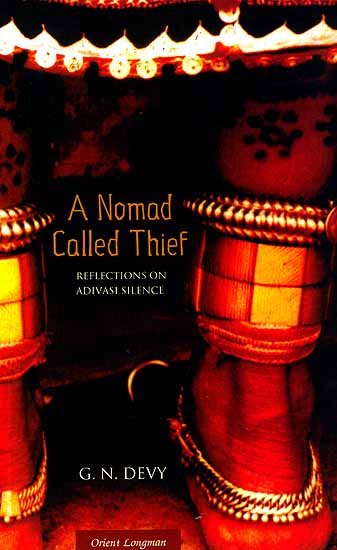The Hindu, 25 November 2017
The Yerukulas were first criminalised by the British and forced into a ‘reformatory’ colony named ‘Stuartpuram’ in 1913. P. Samuel Jonathan reports on the tragic history of a community devastated by colonial prejudice and tracks their struggle to reclaim a life of dignity. | Read the full story >>
The Yerukulas were originally traders of grain and salt who used to operate across the Madras Presidency. The men loaded their goods on donkeys and bullocks, and travelled with their families, supplying essential goods from the coast to far-flung areas in the interior.
When the British introduced road and railway transport in the 1850s, wagons replaced the donkeys, and the traders lost their traditional means of livelihood. These tribesmen were not only traders but also dealt in forest and agricultural produce.
But enclosures instituted by the British cut them off from common forest land and pastures. They used to make baskets, mats, brooms and brushes, but could no longer source the raw material. They were also acrobats, dancers, singers, and fortune-tellers, but the big crowds they attracted in public places made the colonial administration nervous.
The old antagonism and suspicion that landed communities have always harboured for itinerant gypsies combined with colonial prejudice to criminalise an entire community that had lived for centuries on the margins, playing a crucial role as a distribution chain for remote settlements. For the Yerukulas, it led to their being declared as a ‘criminal tribe’. […]
The book, Criminocurology; or The Indian Criminal, and What to do With Him: Being a Review of the Work of The Salvation Army Among the Prisoners, Habituals and Criminal Tribes of India, which was authored by Commissioner Frederick Booth Tucker of the Salvation Army and published in 1916, was instrumental in giving currency and respectability to the notion that the Yerukulas were criminals — a reputation that would continue to haunt them well into the 21st century. […]
The next generation
A recent accomplishment that has brought joy to the people of Stuartpuram came from the world of sport. Ragala Venkat Rahul and Varun, aged 20 and 19, won gold at the recent Australian Weightlifting Championship. Representing the new hopes of a new generation, the champions from Stuartpuram are determined to make it big in life.
“I used to train Rahul from the age of one, by making him to lift small weights,” says his father Madhu. “When he passed class three in the village school, I enrolled him at Hakimpet Sports School near Hyderabad. Since then, my sons have been winning medals in various championships.” Mr. Madhu now dreams of nurturing his sons into world champions.
To make this dream come true, he will need all the help he can get. The A.P. government had announced cash award of ₹15 lakh and ₹10 lakh to Rahul and Varun and promised to grant them some land too. But there has been no action from the Sports Authority of Andhra Pradesh.
Social activist Lavanam says that a study in 2014 revealed that no major crime involving the Yerukala tribe had been registered during the last 40 years. He urged the police not to link any organised crime to Stuartpuram. That is a message that not just the police but society at large would do well to heed.
Source: http://www.thehindu.com/news/national/andhra-pradesh/the-agony-of-stuartpuram/article20799245.ece
Date accessed: 11 December 2017
[Bold typeface added above for emphasis]
Tips
- Check the interactive map seen below for more information on this state or region
- For up-to-date information on any of the above issues, use the search window here: Google custom search – Indian press coverage of tribal culture and education >>
- Use the WorldCat.org search field seen here for authors, names or titles dealing with the above mentioned issues:
“At present, India has 1,350 prisons with a rated full capacity of 4,03,739 prisoners. All jails are bursting with overcrowding and degrading inhuman conditions, so much for standards of human rights of prisoners in terms of the Constitution of India. The Constitution envisioned prisons as centres of reforms, which is not happening.” – Time to tame torturers (tehelka.com) >>
See also: The Universal Declaration of Human Rights turns 70 | Human Rights Commission (posts) | National Human Rights Commission: www.nhrc.nic.in (Government of India) >>

Reflections on Adivasi Silence and Voice by Ganesh [G.N.] Devy | Publications >>
See also
eBooks, eJournals & reports | eLearning
Misconceptions | “Casteism” and its effect on tribal communities
Particularly vulnerable tribal group (PVTG)
Tips for using interactive maps
Toggle to normal view (from reader view) should the interactive map not be displayed by your tablet, smartphone or pc browser
For details and hyperlinks click on the rectangular button (left on the map’s header)
Scroll and click on one of the markers for information of special interest
Explore India’s tribal cultural heritage with the help of another interactive map >>